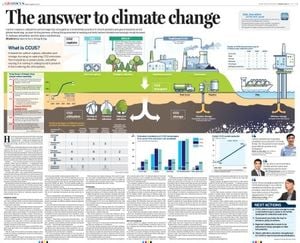The wellness trend has rapidly evolved over the past decade, becoming not just a buzzword but a global priority for many, especially as we navigate through 2025. With increasing access to information and guidance through social media, individuals are making significant lifestyle shifts impacting their health choices daily.
According to recent data from Semrush, interest in nutritional counseling has surged by 22.3% over the last year. This statistic reflects not just curiosity but also a shift toward healthier, personalized habits as Spanish citizens are increasingly prioritizing their well-being amid the demands of everyday life.
Nutrition serves as the cornerstone of wellness, particularly during stressful times where work-life balance appears precarious. With 14,692 monthly searches for nutritionists, it’s clear many are seeking expert advice to help them navigate their dietary choices. This growing demand depicts a society eager for customized strategies rather than generic diets.
Coupled with this increase is a notable rise in interest for vitamin supplements, which jumped 82.7% — spotlighting the public's quest to strengthen their immune systems and prevent deficiencies. This signifies more than just health-consciousness; it's indicative of individuals taking concrete steps to secure their health amid rising health concerns.
Beyond traditional nutrition, alternative therapies such as reiki and acupuncture are also gaining traction, boasting 17,654 and 11,554 searches monthly, respectively. These practices serve as methods to alleviate stress and tension, highlighting a significant trend toward achieving balance and well-being holistically. The curiosity for these therapies suggests increasing willingness among many to explore methods beyond conventional medicine.
Nevertheless, not all wellness pursuits are on the rise. Interest has plummeted by 18.2% in concepts like self-esteem and emotional intelligence. This decline could signal a pivot away from abstract wellness theories, with individuals favoring tangible, straightforward solutions over vague ideals.
Alongside these declines, searches for gyms have surged by 49.6%, emphasizing the desire for physical fitness alongside mental health. The flood of information surrounding wellness could pressure individuals to conform to trends, leading to practices such as 'wellness shaming' where unrealistic standards may adversely affect mental health, particularly among the youth. The ever-present danger of misinformation shared by unqualified influencers necessitates caution and the importance of consulting healthcare professionals before making drastic lifestyle changes.
This dynamic, constantly fueled by platforms like Instagram and TikTok, leads to wellness becoming more of a marketable concept. Businesses are quick to capitalize on trends, offering products labeled as organic or gluten-free. While some of these products are beneficial, others are mere marketing strategies, leaving consumers to navigate the fog of wellness trends and discern fact from hype.
While the allure of contrasting wellness practices remains strong, the core idea of well-being still revolves around the need for both physical and emotional health improvement. The debate over what comprises true wellness continues, as the industry encourages constant self-assessment and optimization of one's lifestyle.
Looking forward to 2025, the pursuit of wellness promises to be ever-evolving, shaped by current trends, technology, and societal demands. Individuals' increasing inclination toward holistic practices, personalized nutrition, and mental health strategies suggests we’ll see continued emphasis on inclusive health practices, where the quest for well-being adapts alongside individual and collective health challenges.
There’s no doubt the trends we see now will set the stage for future health practices, as the public becomes more informed, conscious, and proactive about their wellness journeys.



